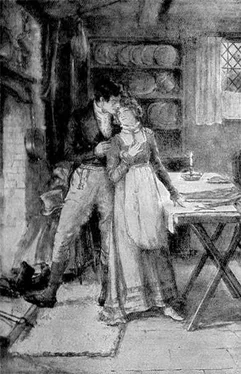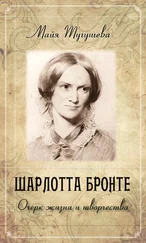Шарлотта Бронте - Shirley
Здесь есть возможность читать онлайн «Шарлотта Бронте - Shirley» весь текст электронной книги совершенно бесплатно (целиком полную версию без сокращений). В некоторых случаях можно слушать аудио, скачать через торрент в формате fb2 и присутствует краткое содержание. Год выпуска: 2014, Издательство: epubBooks Classics, Жанр: Классическая проза, на английском языке. Описание произведения, (предисловие) а так же отзывы посетителей доступны на портале библиотеки ЛибКат.
- Название:Shirley
- Автор:
- Издательство:epubBooks Classics
- Жанр:
- Год:2014
- ISBN:нет данных
- Рейтинг книги:3 / 5. Голосов: 1
-
Избранное:Добавить в избранное
- Отзывы:
-
Ваша оценка:
- 60
- 1
- 2
- 3
- 4
- 5
Shirley: краткое содержание, описание и аннотация
Предлагаем к чтению аннотацию, описание, краткое содержание или предисловие (зависит от того, что написал сам автор книги «Shirley»). Если вы не нашли необходимую информацию о книге — напишите в комментариях, мы постараемся отыскать её.
Shirley — читать онлайн бесплатно полную книгу (весь текст) целиком
Ниже представлен текст книги, разбитый по страницам. Система сохранения места последней прочитанной страницы, позволяет с удобством читать онлайн бесплатно книгу «Shirley», без необходимости каждый раз заново искать на чём Вы остановились. Поставьте закладку, и сможете в любой момент перейти на страницу, на которой закончили чтение.
Интервал:
Закладка:
"Always use such figures of speech, lad; I can understand them. And there is no love affair to disturb your judgment?"
"I thought I had said enough on that subject before. Love for me? Stuff!"
"Well, then, if you are sound both in heart and head, there is no reason why you should not profit by a good chance if it offers; therefore, wait and see."
"You are quite oracular, Yorke."
"I think I am a bit i' that line. I promise ye naught and I advise ye naught; but I bid ye keep your heart up, and be guided by circumstances."
"My namesake the physician's almanac could not speak more guardedly."
"In the meantime, I care naught about ye, Robert Moore: ye are nothing akin to me or mine, and whether ye lose or find a fortune it maks no difference to me. Go home, now. It has stricken ten. Miss Hortense will be wondering where ye are."
Chapter X
Old Maids
Time wore on, and spring matured. The surface of England began to look pleasant: her fields grew green, her hills fresh, her gardens blooming; but at heart she was no better. Still her poor were wretched, still their employers were harassed. Commerce, in some of its branches, seemed threatened with paralysis, for the war continued; England's blood was shed and her wealth lavished—all, it seemed, to attain most inadequate ends. Some tidings there were indeed occasionally of successes in the Peninsula, but these came in slowly; long intervals occurred between, in which no note was heard but the insolent self–felicitations of Bonaparte on his continued triumphs. Those who suffered from the results of the war felt this tedious, and, as they thought, hopeless struggle against what their fears or their interests taught them to regard as an invincible power, most insufferable. They demanded peace on any terms. Men like Yorke and Moore—and there were thousands whom the war placed where it placed them, shuddering on the verge of bankruptcy—insisted on peace with the energy of desperation.
They held meetings, they made speeches, they got up petitions to extort this boon; on what terms it was made they cared not.
All men, taken singly, are more or less selfish; and taken in bodies, they are intensely so. The British merchant is no exception to this rule: the mercantile classes illustrate it strikingly. These classes certainly think too exclusively of making money; they are too oblivious of every national consideration but that of extending England's—that is, their own—commerce. Chivalrous feeling, disinterestedness, pride in honour, is too dead in their hearts. A land ruled by them alone would too often make ignominious submission—not at all from the motives Christ teaches, but rather from those Mammon instils. During the late war, the tradesmen of England would have endured buffets from the French on the right cheek and on the left; their cloak they would have given to Napoleon, and then have politely offered him their coat also, nor would they have withheld their waistcoat if urged; they would have prayed permission only to retain their one other garment, for the sake of the purse in its pocket. Not one spark of spirit, not one symptom of resistance, would they have shown till the hand of the Corsican bandit had grasped that beloved purse; then , perhaps, transfigured at once into British bulldogs, they would have sprung at the robber's throat, and there they would have fastened, and there hung, inveterate, insatiable, till the treasure had been restored. Tradesmen, when they speak against war, always profess to hate it because it is a bloody and barbarous proceeding. You would think, to hear them talk, that they are peculiarly civilized—especially gentle and kindly of disposition to their fellow–men. This is not the case. Many of them are extremely narrow and cold–hearted; have no good feeling for any class but their own; are distant, even hostile, to all others; call them useless; seem to question their right to exist; seem to grudge them the very air they breathe, and to think the circumstance of their eating, drinking, and living in decent houses quite unjustifiable. They do not know what others do in the way of helping, pleasing, or teaching their race; they will not trouble themselves to inquire. Whoever is not in trade is accused of eating the bread of idleness, of passing a useless existence. Long may it be ere England really becomes a nation of shop–keepers!
We have already said that Moore was no self–sacrificing patriot, and we have also explained what circumstances rendered him specially prone to confine his attention and efforts to the furtherance of his individual interest; accordingly, when he felt himself urged a second time to the brink of ruin, none struggled harder than he against the influences which would have thrust him over. What he could do towards stirring agitation in the north against the war he did, and he instigated others whose money and connections gave them more power than he possessed. Sometimes, by flashes, he felt there was little reason in the demands his party made on Government. When he heard of all Europe threatened by Bonaparte, and of all Europe arming to resist him; when he saw Russia menaced, and beheld Russia rising, incensed and stern, to defend her frozen soil, her wild provinces of serfs, her dark native despotism, from the tread, the yoke, the tyranny of a foreign victor—he knew that England, a free realm, could not then depute her sons to make concessions and propose terms to the unjust, grasping French leader. When news came from time to time of the movements of that MAN then representing England in the Peninsula, of his advance from success to success—that advance so deliberate but so unswerving, so circumspect but so certain, so "unhasting" but so "unresting;" when he read Lord Wellington's own dispatches in the columns of the newspapers, documents written by modesty to the dictation of truth—Moore confessed at heart that a power was with the troops of Britain, of that vigilant, enduring, genuine, unostentatious sort, which must win victory to the side it led, in the end. In the end! But that end, he thought, was yet far off; and meantime he, Moore, as an individual, would be crushed, his hopes ground to dust. It was himself he had to care for, his hopes he had to pursue; and he would fulfil his destiny.
He fulfilled it so vigorously that ere long he came to a decisive rupture with his old Tory friend the rector. They quarrelled at a public meeting, and afterwards exchanged some pungent letters in the newspapers. Mr. Helstone denounced Moore as a Jacobin, ceased to see him, would not even speak to him when they met. He intimated also to his niece, very distinctly, that her communications with Hollow's Cottage must for the present cease; she must give up taking French lessons. The language, he observed, was a bad and frivolous one at the best, and most of the works it boasted were bad and frivolous, highly injurious in their tendency to weak female minds. He wondered (he remarked parenthetically) what noodle first made it the fashion to teach women French. Nothing was more improper for them. It was like feeding a rickety child on chalk and water gruel. Caroline must give it up, and give up her cousins too. They were dangerous people.
Mr. Helstone quite expected opposition to this order; he expected tears. Seldom did he trouble himself about Caroline's movements, but a vague idea possessed him that she was fond of going to Hollow's Cottage; also he suspected that she liked Robert Moore's occasional presence at the rectory. The Cossack had perceived that whereas if Malone stepped in of an evening to make himself sociable and charming, by pinching the ears of an aged black cat, which usually shared with Miss Helstone's feet the accommodation of her footstool, or by borrowing a fowling–piece, and banging away at a tool shed door in the garden while enough of daylight remained to show that conspicuous mark, keeping the passage and sitting–room doors meantime uncomfortably open for the convenience of running in and out to announce his failures and successes with noisy brusquerie —he had observed that under such entertaining circumstances Caroline had a trick of disappearing, tripping noiselessly upstairs, and remaining invisible till called down to supper. On the other hand, when Robert Moore was the guest, though he elicited no vivacities from the cat, did nothing to it, indeed, beyond occasionally coaxing it from the stool to his knee, and there letting it purr, climb to his shoulder, and rub its head against his cheek; though there was no ear–splitting cracking off of firearms, no diffusion of sulphurous gunpowder perfume, no noise, no boasting during his stay—that still Caroline sat in the room, and seemed to find wondrous content in the stitching of Jew–basket pin–cushions and the knitting of missionary–basket socks.
Читать дальшеИнтервал:
Закладка:
Похожие книги на «Shirley»
Представляем Вашему вниманию похожие книги на «Shirley» списком для выбора. Мы отобрали схожую по названию и смыслу литературу в надежде предоставить читателям больше вариантов отыскать новые, интересные, ещё непрочитанные произведения.
Обсуждение, отзывы о книге «Shirley» и просто собственные мнения читателей. Оставьте ваши комментарии, напишите, что Вы думаете о произведении, его смысле или главных героях. Укажите что конкретно понравилось, а что нет, и почему Вы так считаете.











